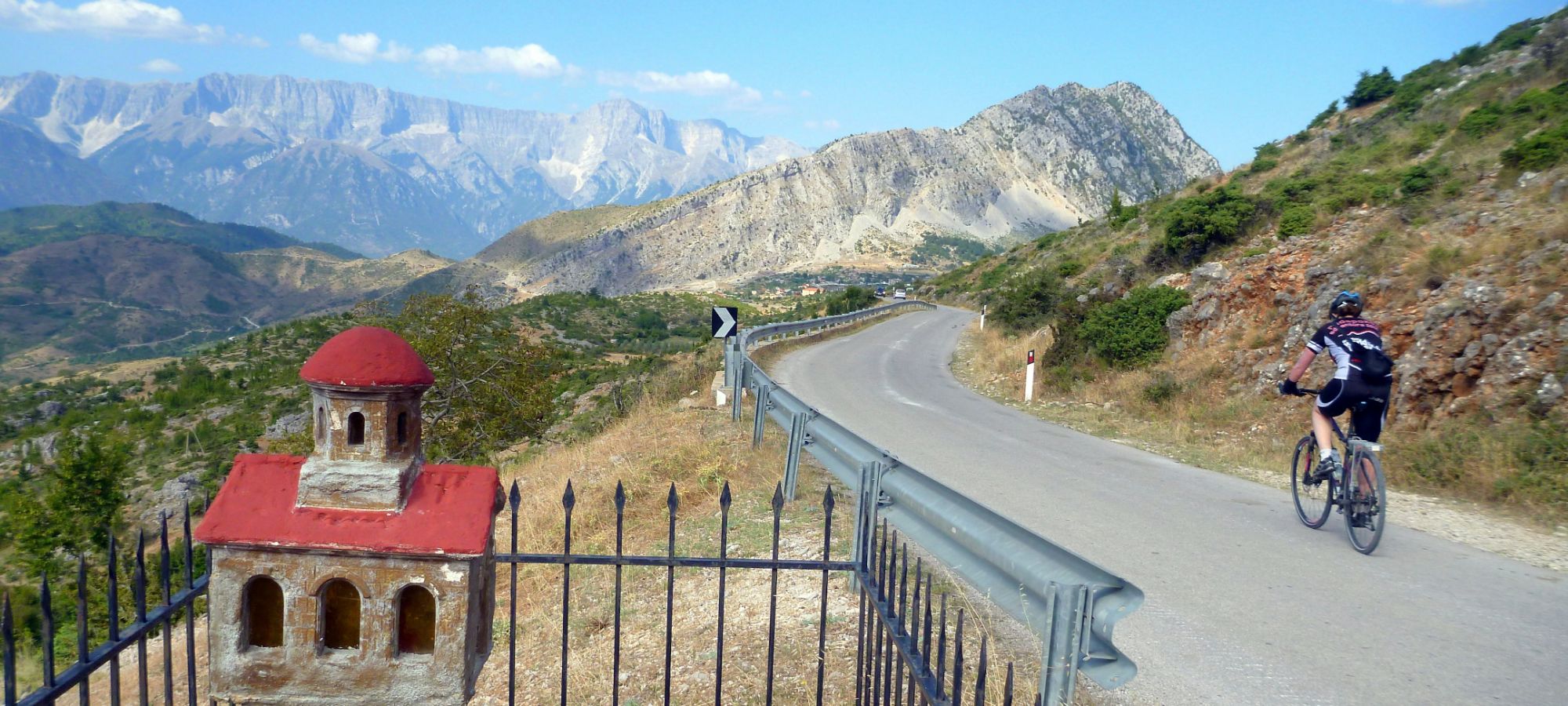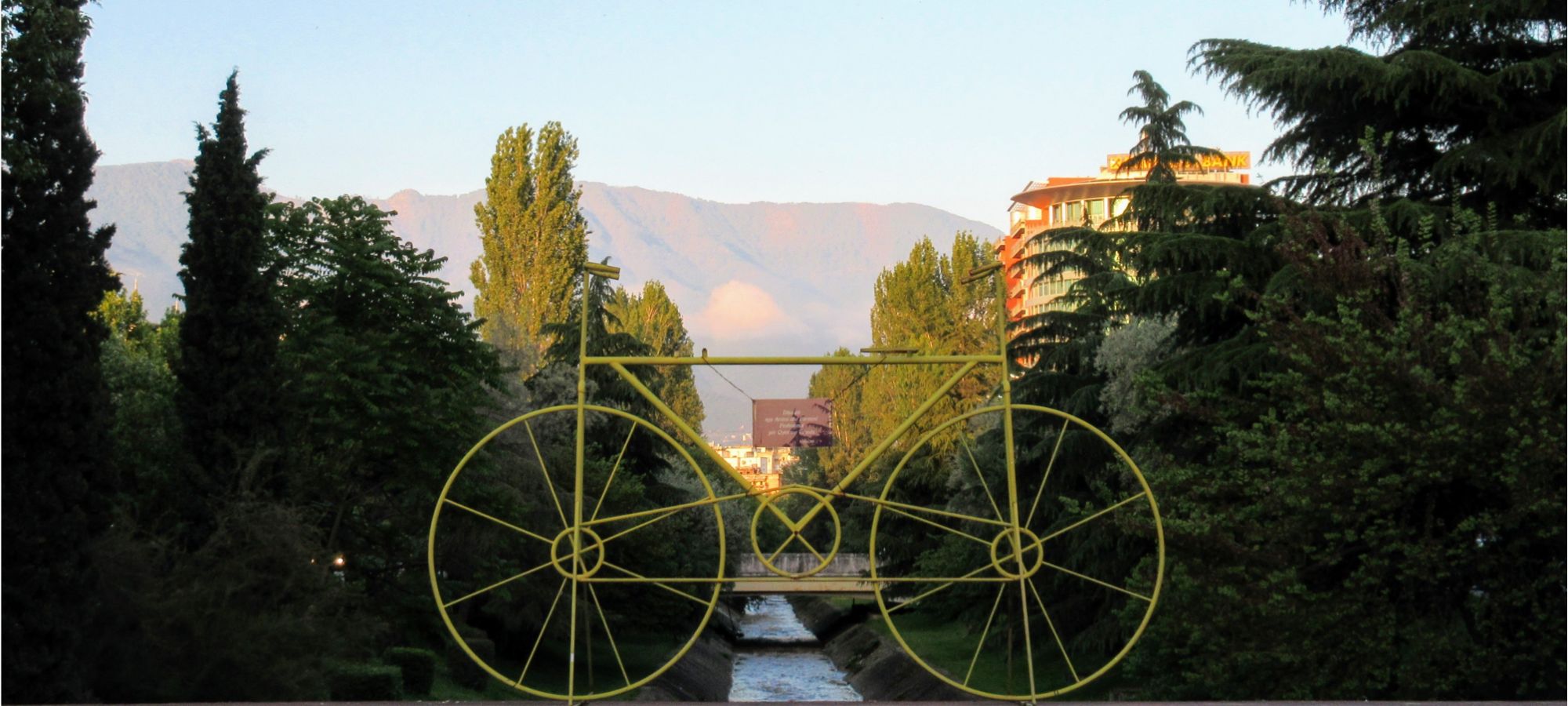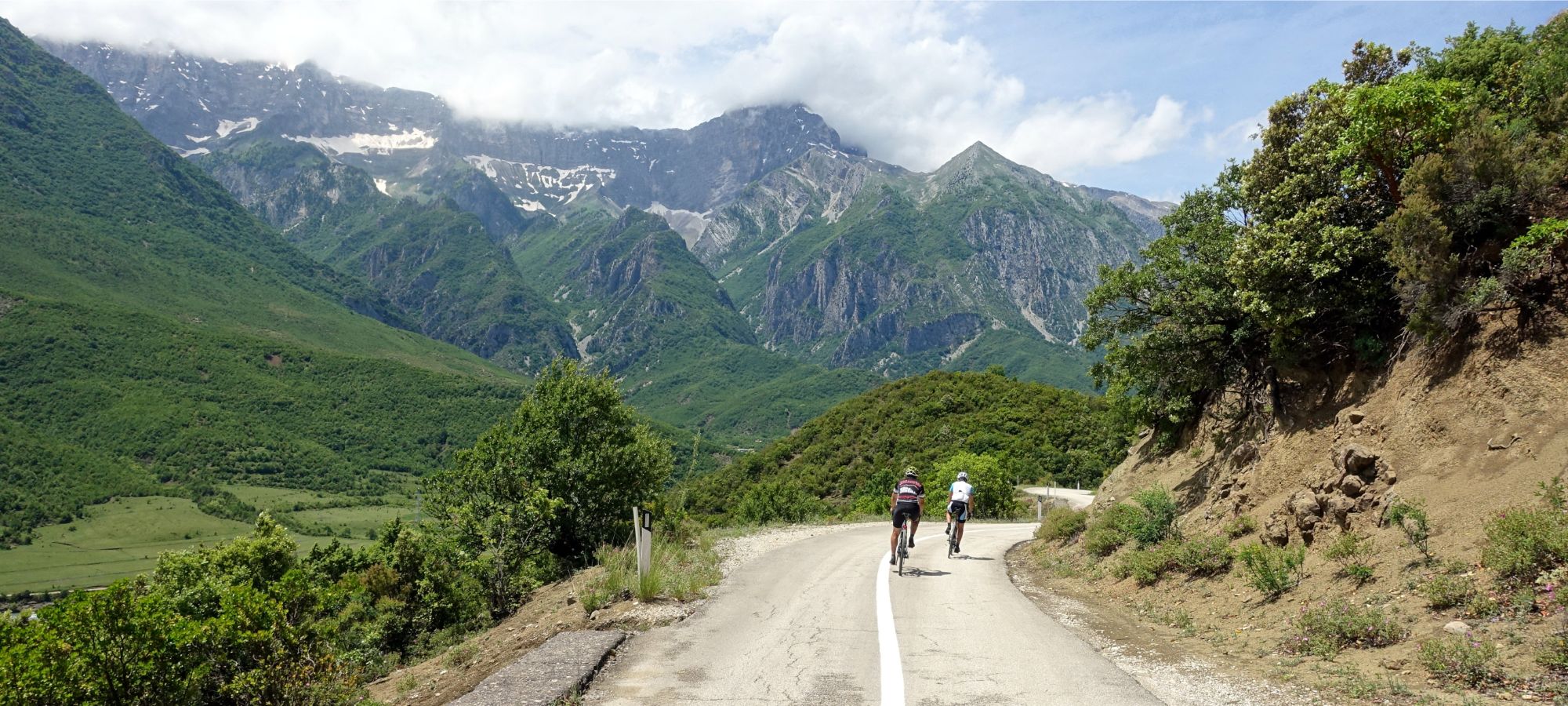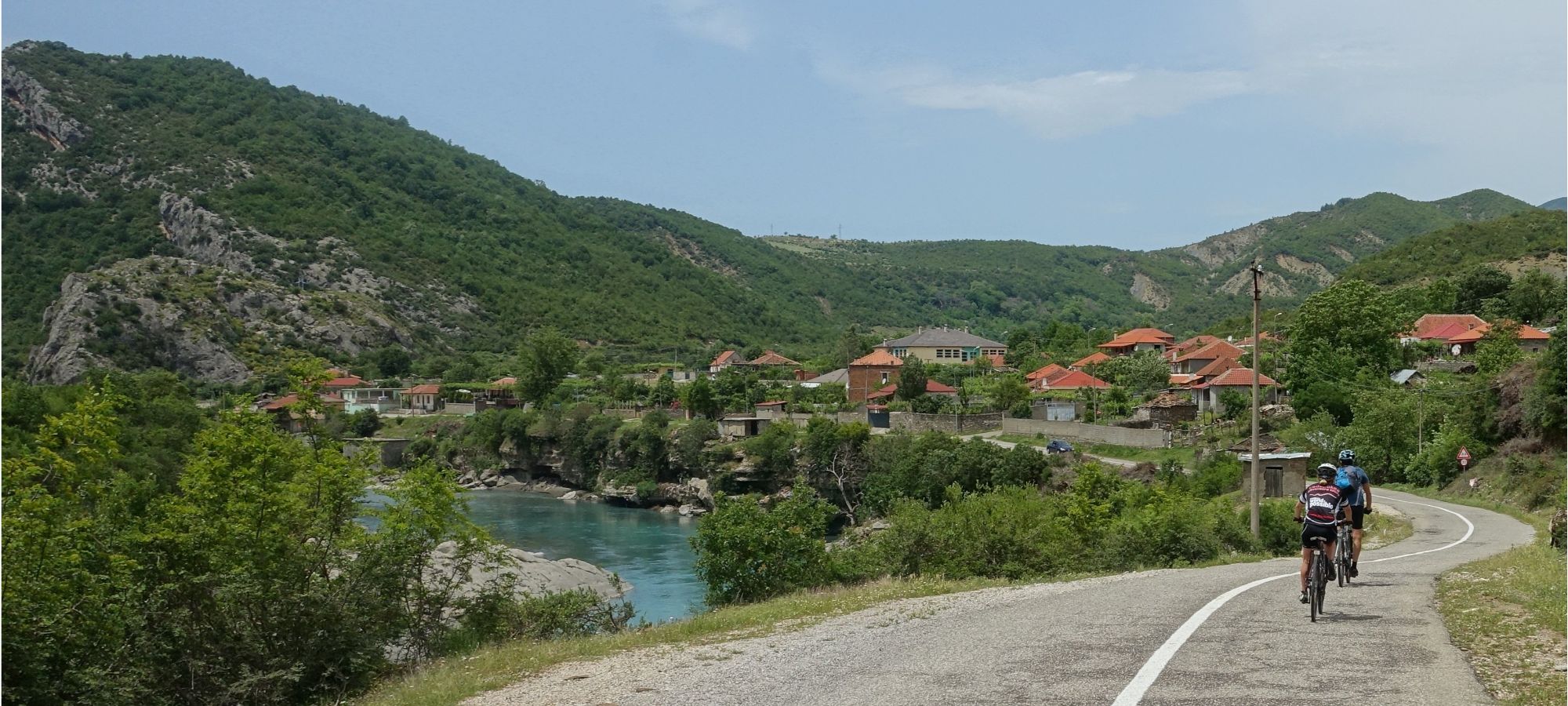Key Places:
Albania - North to South Cycling Holiday
Mountains and Beaches
Tirana
Tirana was founded in the 17th C by a feudal lord, the city's beginnings were modest: a mosque, a bakery and a hamam (Turkish bath). Tirana became the permanent capital of Albania in 1925.
Albania was for 50 years an isolated nation under communist rule. The city's elegant boulevards are rich with Ottoman, Italian and communist influences - from architecture to street art.
Today a third of Albanians live in the capital and the average age is 30 years. English and Italian are common second languages. Tirana is a vibrant mix of enterprise, history, bustle and progress; the small city centre is easy to navigate. There are free waking tours if you would like to be guided around. For nightlife and eating out head to "The Block" (Blloku); in the past this was the area where communist leaders lived under strict protection. Sites of interest include Skanderbeg Square's 1789 Et'hem Bey Mosque, the 1830 Sahat-Kulla (Clock Tower), the puppet theatre, once home to King Zog's puppet parliament and the Peace Bell made from old cartridge shells, remembering Tirana's tempestuous history.
You can take a cable car to Mount Dajti for panoramic views of the city.
Gjirokastër
Historic Gjirokaster the ‘City of Stone’, is a well preserved Ottoman town and one of Albania's three UNESCO World Heritage sites. Built by farmers of a large estate, it is located between the Gjerë mountains. perched on the steep side of the Drino valley, overlooking a landscape framed by snow-capped mountains. With steep cobbled streets, the city comprises hundreds of Ottoman-style tower houses with distinctive stone roofs, wooden balconies and whitewashed stone walls. Gjirokastër is the birthplace of former Albanian communist leader Enver Hoxha and renowned writer Ismail Kadare.
Towering over the town is Gjirokastër Fortress a vast castle, the second largest in the Balkans. Within the castle is an armaments museum of mostly post-war era weapons, photographs. There are numerous other chambers, some in ruins, open to exploration. Underneath the castle is the recently discovered underground bunker built in the Cold War. There is Artisan centre located nearby where you can buy many souvenirs and traditional crafts
Also in the city are the Seven Fountains, the Mechite Mosque Remains, and the Hamams public bath, with a distinctive cone shaped roof. The Meçite Hamam is one of 10 ancient public baths preserved in Albania. The fountains and the exterior of the Hamams have been recently restored.
Ohrid
Ohrid is one of the oldest human settlements in all of Europe. The lake itself is over three million years old. Ohrid and Lake Ohrid are UNESCO Cultural and Natural World Heritage sites. There are opportunities to fish and boat or do water sports on the lake and several sandy beaches.
Ohrid is sometimes referred to as a "Jerusalem of the Balkans". Places of interest include a number of churches, (such as medieval St. Sofia with Byzantine fresco paintings), a monastery and an ancient theatre. The traditional bazaar runs along a single street down to the town square where there is a 1000 year old tree and a pretty fountain. Ohrid Fortress is a large mediaeval castle, with massive walls and ramparts. With numerous cafés, bars and clubs Ohrid has a vibrant nightlife.
Sarandë
Sarande Saranda or Sarandë in southern Albania is one of the key tourist destinations on the Albanian Riviera. It is situated on the Ionian sea in the central Mediterranean about 14 km from Corfu. Overlooking Sarande is 16th C Lekursi Castle. There are excellent views of Corfu and the islands of Ksamil from the castle which was built because the vantage point was ideal for protecting the city from invaders who might have approached by sea.
Nearby are the remains of the ancient city of UNESCO World Heritage city Butrint. Butrint is one of several places in Albania which was closed to the general public during the Communist Era. The city was promoted as a tourist destination for foreigners to visit, but Albanian citizens were not allowed there due to fears that they would try to escape by swimming the short distance to Greece. Within Butrint are remains from most major empires of the area, including Greek, Roman, Byzantine, and Ottoman ruins. It includes a Greek amphitheatre (later remodeled by the Romans), a baptistry, a cathedral, the lion’s gate, and a museum.
If you need assistance or wish to discuss the tour, please feel free to call us on +44 (0) 1463 417707.
Alternatively, you can email us on office@redspokes.co.uk for more information on this adventure holiday.
Key Places
There are several key places on our Albania - North to South cycling holiday. Please choose from the following list for more information on each key place.
Customer Testimonial
"Arjan and Tani are among the best guides and support we have ever experienced. They greatly helped our understanding of Albania and its history, and ensured every one of us..."
Steve & Kathy Riegel








.jpg)
.jpg)
.jpg)
.jpg)
.jpg)
.jpg)
.jpg)
.jpg)
.jpg)
.jpg)


.jpg)
.jpg)

